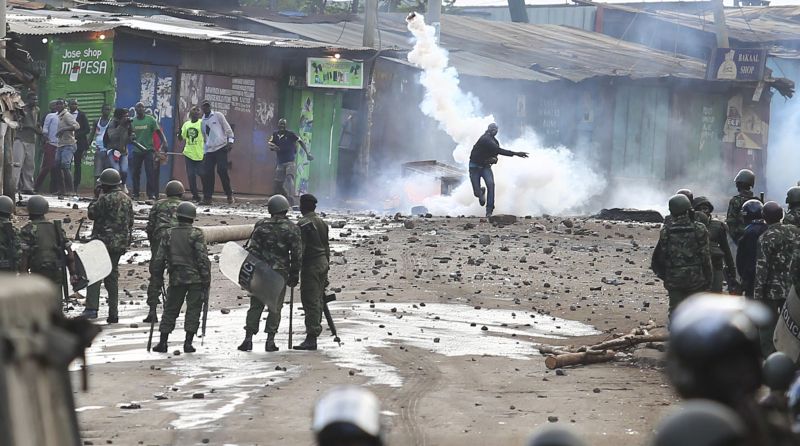How judges compounded Kenyan state’s crisis of legitimacy
In its most recent decision, the judges yesterday upheld the victory of incumbent President Uhuru Kenyatta in the rerun election that was held in late October. They probably had no other choice since Kenya’s people are tired of constant campaigning, and yet another presidential election would have sapped credibility.
The problem, however, is that the rerun election was utterly unconvincing. It was boycotted by the opposition. Kenyatta won more than 90 % of the votes, but voter turnout was only 39 %. In summer, it had been 80 %. Making matters worse, the opposition had reason to claim that the election would not be fair.
When a candidate drops out of a campaign, one should always suspect that he or she simply has little faith in being able to win. Things were a bit different in Kenya this time. The same election commission that the Supreme Court had found to have not run the first election properly was in charge of the rerun. Adding to the problems, one of its members fled to the USA shortly before the event, and claimed to be fearing for her life. Of course people had not forgotten that another member of the election commission was murdered shortly before the first election in August.
Public trust took another hit one day before the rerun election took place. The Supreme Court declared itself unable to decide on whether the rerun was legitimate or not because too few of its judges assembled in Nairobi. The deputy chief justice was missing because her driver was hospitalised after having been shot the night before. Apparently other members of the bench also feared for their lives. The rerun election thus went ahead without the top court having decided on its legitimacy.
The depressing truth is that Kenya’s institutions of governance had very little time to arrange things properly for the rerun election. On 1 September, the Supreme Court announced the annulment and ordered that the rerun be held within 60 days, but they only delivered their extensive judgment three weeks later. For 20 days, Kenya’s public was left to wonder what had gone wrong and who was to blame. In the end, the judges pointed out various procedural flaws, but refrained from indicating any personal guilt. Institutional failures may indeed be systemic rather than personal, but if that is so, the judges must definitely spell out what needs to happen to set the system right. Unfortunately, the judges did not live up this duty. They should have past orders to ensure that the rerun election’s legitimacy would not be beyond any doubt.
In this setting, the opposition’s argument that too little had changed seemed all too plausible. Therefore, it was quite irritating that the court failed to convene in time before the rerun election. That things were spinning out of control was quite evident. A Supreme Court must not turn out to be unable to decide on an issue of national interest at a moment of national crisis. Depressingly, that is what happened in Kenya.
In retrospect, it seems that the judges did not pay too much attention to formalities, too little attention to the substance of justice. The constitutional requirement that a presidential election must be repeated within 60 days after being annulled does not make much sense if fair and clean elections cannot be guaranteed. In such a scenario, the judges should have granted more time and defined clearly what to do in that period. Moreover, they should’ve explained those decisions diligently.
In a similar way, the quorum that a minimum number of judges must convene to be able to decide hardly makes sense at a time when judges are afraid to convene. To the German observer it seems bizarre that they waited until the very last day before the rerun election, and that they did not opt for tele-conferencing by mobile phone.
On Monday, at least two people were killed during protests in Kenya, according to media reports. Several others had died in the days before. Many Kenyans do not consider Kenyatta their legitimate president. Commenting on the court’s decision to uphold the rerun election, Raila Odinga, the opposition leader, said: “This ruling didn’t come as a surprise. It was a decision taken under duress. We do not condemn the court, we sympathise with it.”
This is a truly depressing development. Institutions of governance need to be kept in check. They must be made aware of not being above the law. Kenya’s Supreme Court made an effort to live up to this mission, and international observers appreciated that it was thus setting an example for the entire continent. Unfortunately, it did not do a thorough job.














